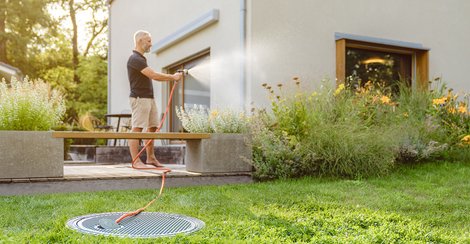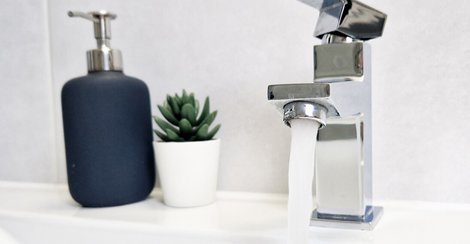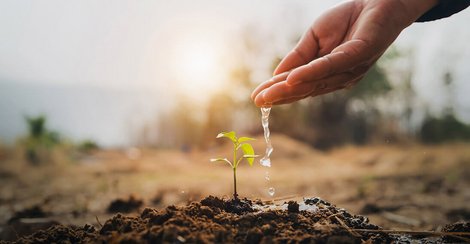The source of life: Why water is so valuable
GRAF on the Day of Water 2024
Water is life. But what significance does this endangered resource actually have for us humans? And how can we protect it?
It surrounds us, flows through us and supplies us: water. The element of acid and hydrogen is omnipresent. Despite its great importance for humans, we are hardly aware of its presence in everyday life. It flows naturally over our bodies when we shower in the morning, collects in puddles when it rains, seeps into the ground when we water our flowers and runs down our throats when we drink. Water is not called the source of life for nothing. After all, human life originated from water and is still only possible today thanks to water. In short: water is life.
Water for humans
But it is even more: it forms the basis of all life on our planet. It covers around 70 percent of the earth's surface and makes up around 60 percent of the human body. In addition, water fulfills many vital functions in the body. It transports nutrients and oxygen to the cells and organs, ensures the decomposition of food during digestion, enables the removal of waste products and regulates body temperature - especially in hot temperatures or when we exercise. Water also acts as a protective cushion and lubricant for joints and organs. It counteracts concentration problems and tiredness - provided we drink enough. According to the German Nutrition Society (DGE) the recommended daily intake of water for adults is around one and a half liters. We also need it for our other food. Without water, neither fruit nor vegetables grow, there is no milk, no meat and no fish.
Water - an endless source?
Despite its crucial role for life on earth, water is a limited resource. Only about 2.5 percent of the world's water supply is fresh water. However, a large proportion of this only exists in bound form in permafrost soils, ice and snow. This small amount of fresh water is endangered by various factors. One of these is pollution with wastewater, chemicals and fertilizers from industry, agriculture and households.
In addition, overuse is an acute problem in many parts of the world. More and more people around the world are consuming ever greater quantities of water. In Germany alone, each person uses an average of 128 liters of water per day - the equivalent of a full bathtub. The increasing demand for water in turn means that groundwater levels are sinking and bodies of water are drying up. Climate change is exacerbating the situation with more extreme weather events such as droughts and floods, which affect water availability and quality.
Protecting water - here's how
In view of these challenges, there is no way around protecting water resources responsibly. This starts with small changes in everyday life, such as showering instead of bathing or turning off the tap when washing your hands. However, it is just as important not to contaminate the water. Do not dispose of leftover food or medicines in the toilet or use compost instead of fertilizer. Just as important: rainwater can also be used more frequently and in more diverse ways. Rain barrels or cisterns can be used not only to water the garden at home, but also to run the toilet or washing machine. Intelligent retention and sponge solutions can also prevent the worst from happening even during heavy rainfall events. The collected water is thus returned to the cycle in a sensible way.
The most important thing, however, is to raise awareness of the inestimable value of water and not to take it for granted when it is used in everyday life.





